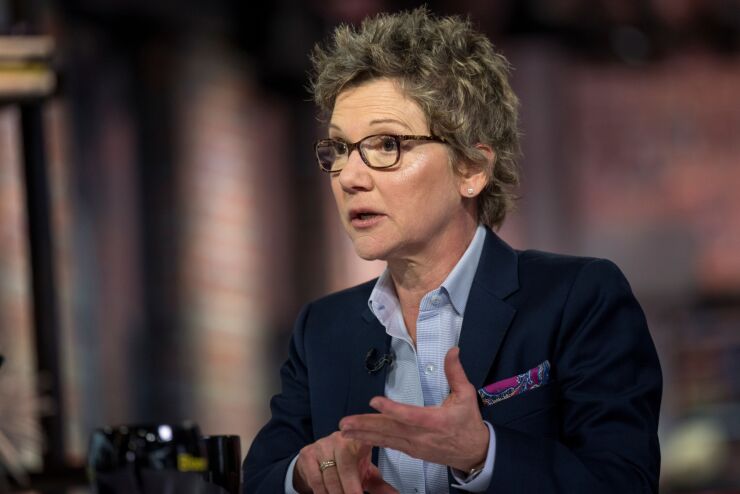The U.S. economy can escape another decadelong slog back to health if strong public measures or a vaccine curb virus surges, Federal Reserve Bank of San Francisco President Mary Daly said.
“If we can get the public health issues under control either through a really robust mitigation strategy or a vaccine, then we can reengage in economic activity really quickly,” Daly said Wednesday in a virtual Washington Post Live event. “Then it could take just four years or five years. But if we end up with a pervasive, long-lasting hit to the economy, then it could take longer.”

The U.S. economy
Some data indicate that the economy is starting to recover. Retail sales jumped 17.7% in May from the previous month and a gauge of
“We’ve certainly seen some signs that are positive,” Daly said. “But I would hesitate to call this a recovery. Because ultimately the virus will determine the pace at which we can go.”
She added that the Fed learned a lot from the previous expansion, when the unemployment rate fell to a 50-year low even while inflation remained subdued. The tight labor market caused employers to hire Americans who are often left on the sidelines, such as disabled workers and the formerly
“What we heard time and time again is that the economy is hotter than we think it could be,” Daly said, referring to the Fed Listens events that she and her colleagues attended in communities throughout the country. “If unemployment has fallen to historically low levels as opposed to hovering around its pre-recession trend, then this causes employers to rethink the skills they require, to do more on-the-job training.”





